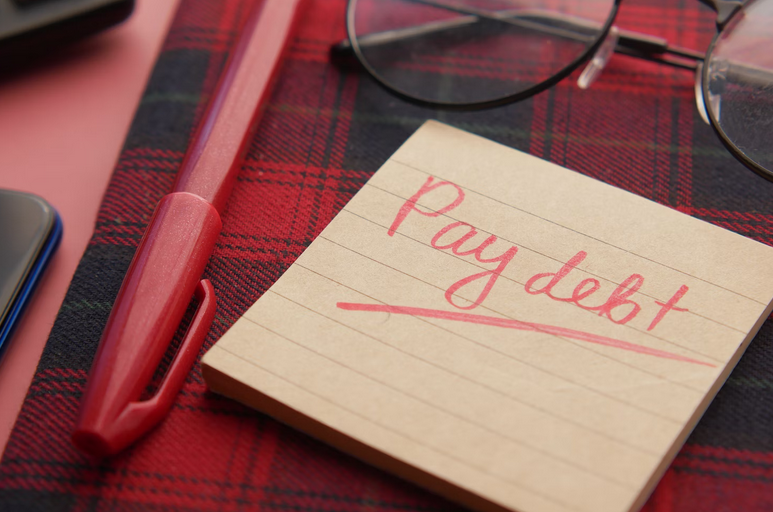Debt Settlement Strategies: Negotiating Your Way to Financial Freedom

Picture your financial journey as a sailboat navigating the seas of debt. When waves of financial challenges seem overwhelming, there’s a powerful tool in your arsenal: debt settlement. In this friendly and informative guide, we’ll explore the art of debt settlement strategies, equipping you with the knowledge to negotiate your way toward the shores of financial freedom.
Understanding Debt Settlement
Debt settlement is a negotiation process where creditors agree to accept a lesser amount than the total owed, often as a final payment. It can be a lifeline for those facing overwhelming debt, offering a chance to break free from the chains of financial stress.
Assess Your Financial Situation
Before setting sail on the debt settlement voyage, take stock of your financial situation. Understand the total amount of debt, interest rates, and your ability to make reasonable payments. This assessment lays the groundwork for effective negotiations.
Know Your Rights
Familiarize yourself with your rights as a debtor. The Fair Debt Collection Practices Act (FDCPA) outlines rules that debt collectors must follow. Knowing your rights empowers you during negotiations and ensures fair treatment throughout the process.
Open Communication Channels
Communication is key in any negotiation. Reach out to your creditors and explain your financial hardship. Many creditors prefer working with debtors to find a solution rather than resorting to more aggressive debt collection methods.
Seek Professional Debt Settlement Assistance
Consider enlisting the help of a reputable debt settlement company. These professionals have experience negotiating with creditors and can guide you through the process. While there may be fees involved, the expertise they bring to the table can significantly improve your chances of a successful settlement.
Determine a Realistic Settlement Amount

Settlement negotiations involve proposing a reduced amount to your creditors. Assess what you can realistically afford to pay and propose a settlement amount that aligns with your financial capabilities. Being transparent and realistic fosters a more cooperative atmosphere.
Get Settlement Agreements in Writing
When an agreement is reached, ensure that all terms are documented in writing. This includes the settled amount, the impact on your credit report, and any other stipulations. Having a written agreement protects both parties and provides clarity on the terms of the settlement.
Understand the Impact on Your Credit
Debt settlement can have an impact on your credit score. However, it is often less severe than the consequences of unpaid debts or bankruptcy. Understand the potential effects and plan for credit repair strategies as part of your post-settlement financial journey.
Debt settlement is a powerful tool that can help you navigate the stormy seas of financial difficulty. By understanding the process, communicating openly, and approaching negotiations with a clear plan, you can sail towards the shores of financial freedom. As you embark on this journey, remember that each successful negotiation brings you one step closer to a debt-free horizon and the promise of a more stable financial future.…


 The first step to breaking the cycle of debt is to be mindful and track your spending. Knowing how much you spend each month can help you identify areas in which you’re overspending and take steps to reduce your expenses. Keeping a budget or using a financial planning tool like Mint or You Need A Budget (YNAB) can help you stay on top of your finances and be more mindful of your spending.
The first step to breaking the cycle of debt is to be mindful and track your spending. Knowing how much you spend each month can help you identify areas in which you’re overspending and take steps to reduce your expenses. Keeping a budget or using a financial planning tool like Mint or You Need A Budget (YNAB) can help you stay on top of your finances and be more mindful of your spending. There is always an option for you to leverage your debt with balance transfers. This can be a great way to reduce the amount of interest you’re paying and to make progress on paying down your debt. When you transfer a balance from one credit card to another, look for cards that offer introductory 0% APR periods so that all of your payments are applied directly toward the principal. In some cases, balance transfers can be a great way to get out of debt.
There is always an option for you to leverage your debt with balance transfers. This can be a great way to reduce the amount of interest you’re paying and to make progress on paying down your debt. When you transfer a balance from one credit card to another, look for cards that offer introductory 0% APR periods so that all of your payments are applied directly toward the principal. In some cases, balance transfers can be a great way to get out of debt.
